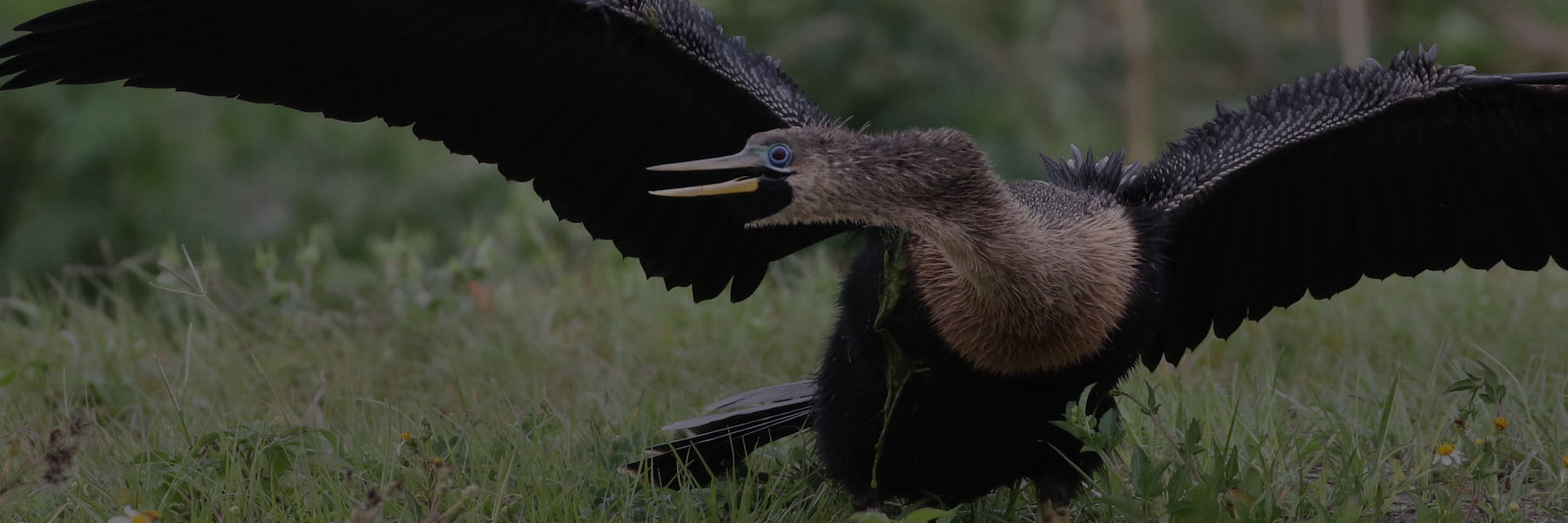Rain Won’t Stop the Birding
3 CommentsRain does not always ruin a birding day. I recently came back from a photographic trip in Florida where the weather started out very iffy. We arrived early on Saturday and went right into bird-mode. One of our stops for the day was Lake Apopka Wildlife Drive, which recently opened up last summer. We decided to go there when the skies started to darken. It was the perfect stop for a rainy afternoon since we could stay protected in the car.

Pied-billed Grebe surrounded by rain drops
Most of the birds just continued with their normal routines, feeding in the marsh.

American Coots

This Purple Gallinule came out for a quick view

Common Gallinule with its tail up
Others waited outside of the water for the rain to stop.

Little Blue Heron on the bank

Great Egret waiting on concrete

Soaked Anhinga drying on the rocks

Anhinga waiting for the rain to stop

Drying its wings before jumping down
The rain started to calm down not long after we began the drive, but was still falling enough to get our gear wet if we left the car, so many shots were taken from a higher angle.

Glossy Ibis as the rains calm down

Tri-colored Heron hunting nearby the Ibis

White Ibis drying off
It did eventually stop, however, the skies remained overcast for the rest of the drive. That certainly did not stop us from getting low to photograph birds for the remainder of the drive.

Blue-winged Teal in overcast light

Anhinga with a nice catch

Snowy Egret resting in the water
I was able to get some great photo ops with some birds that I could not get close enough to last year. I took tons of photos of this Osprey and Red-shouldered Hawk, which may end up getting blog posts of their own in the future.

An Osprey with a huge Catfish

Juvenile Red-shouldered Hawk who gave us quite a show

The Cattle Egrets were tough to photograph unless you stayed in the car
Not all of them were fully cooperative though.

I would rather this photo of the Belted Kingfisher include the tip of his beak
I even saw a life bird on the drive – the Fulvous Whistling Duck. Our first looks at them were all in flight until a single duck flew in, landed nearby, and interrupted our photo session with the Red-shouldered Hawk.

This Fulvous-Whistling Duck came in close for a decent photo op

Black-bellied Whistling-Ducks also made a few appearances
I even photographed a new sub-species life bird, the Eastern Towhee with white eyes. The ones I am used to seeing have red eyes. The white-eyed ones are found in the Southeast and Florida.

White eyed Eastern Towhee
Some young birds made an appearance, too.

Young Pied-billed Grebes
We also photographed two American Bitterns out in the open – one was found toward the beginning of the drive and the other at the end.

American Bittern just after the rain calmed down

American Bittern photographed toward the end of the day
And, of course, there were Alligators. I photographed this one below the Osprey.

This Alligator stole my attention for only a moment
I highly recommend this wildlife drive for anyone who finds themselves birding around Lake Apopka. The different habitats bring all kinds of great birds!

Anhinga drying its wings













